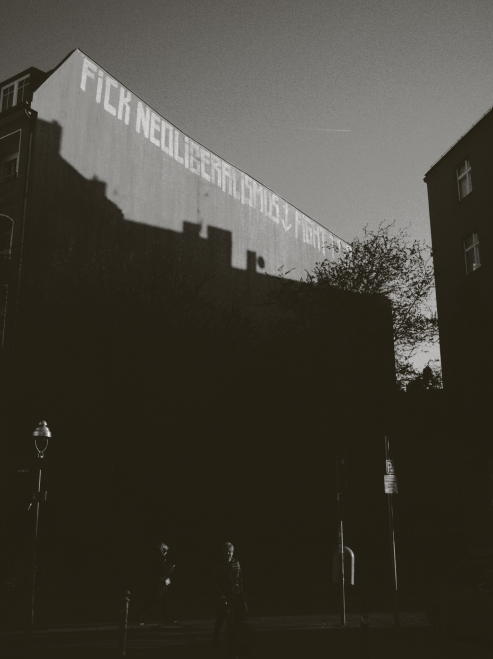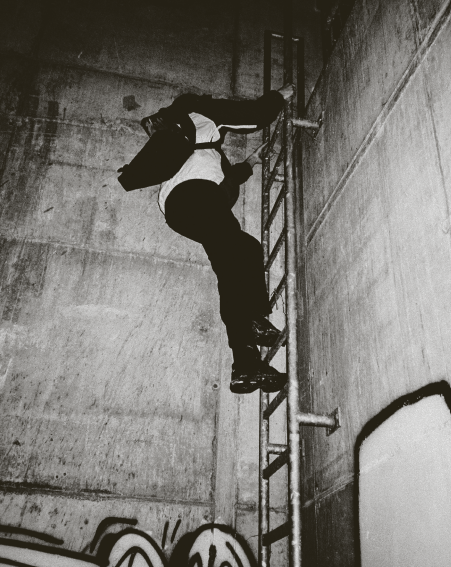You need a change of scenery but don’t know where to start? We’ll show you how to transform your dingy flat into a dream palace with great DIY ideas. Bring utopia into your living room! Tip 6 will surprise you.
1. Take stock of your old hoarder’s room
Take a look around: Your room is outrageously small and yet so expensive that it eats up all your money. The kebab around the corner now costs ten euros and you can’t afford to go clubbing at the weekend anymore. Everything is getting more and more expensive anyway and you have to watch where you stand. You’re too exhausted from work, school and university to enjoy the fun things in life. You scroll through social media for hours and already suspect that neither new skincare ranges nor air fryers will be a real lifesaver. You don’t even watch the news anymore because it just depresses you. At the end of the day, you feel lonely, overwhelmed and helpless. Is everything shit? Yes – but not everywhere. And there is help.
2. A fresh coat of paint for your four walls
Day in, day out, running up against a wall – which seems to be getting bigger and bigger – with our utopian ideas is extremely exhausting. Access to alternative spaces helps you to see beyond this huge wall. For example, if you realise at your local self-managed centre that you are not alone in your desire for a better world, then you can start to take action. In the house project in your neighbourhood, you can get involved in politics, let your creativity run wild and sometimes even get a place to sleep at a fair price. At the weekend, you go to self-organised concerts, parties and festivals where everyone looks out for each other and can be themselves without fear. It is projects like these that give us hope and show us that we can live together in a completely different way. Where people try to counter all the shit with a collective response and create alternatives themselves. You need people around you who don’t care about social expectations and prefer to support each other rather than compete with each other. Why shouldn’t we anticipate on a small scale what we want on a large scale?
3. Furnishing your new free space according to your needs
In the best case scenario, we learn a lot about how we want to live together and show other people how beautiful life could be without competition and exploitation. And yes, this only ever happens on a limited scale, but that doesn’t mean it should be dismissed: because people who initiate and defend such projects create places where we can organise ourselves and learn from each other. Open, shared spaces make it possible to build, maintain and network left-wing structures in the first place.
4. Let your creativity run wild
These small utopias can make a concrete contribution to distributing resources and care work more fairly right now, for example by organising childcare collectively. There are quite a few things that can be shared: finances, cars, workshops, responsibilities, gardens, jobs, skills, housework and refrigerators. Kitchens for all, for example, where you can get food at cost price or even cheaper, prove: It is not a law of nature that you have to sell your last shirt for a hot meal. It is not just about charity, but also about self-empowerment: We form gangs in these spaces, seek advice from each other and protect each other from repression. We sing together in choirs and build neighbourhood networks. In craft collectives, we work on our own terms. Art collectives also enable those of us who weren’t born into rich families to express ourselves creatively. Essentially, we can create the little utopia that we’re missing. Many of these free spaces are also desperately needed safe spaces, especially for refugees, queer people and left-wing activists.
5. Cottagecore is out
So we all move into housing projects and everything will be fine?! Unfortunately, it’s not quite that simple. As leftists, we should not be content with creating cosy islands of retreat for ourselves. Being able to retreat to these free spaces is important, but it is also a privilege that many people, such as those in need of care, are often denied. Even in rural areas, house projects or left-wing centres are usually nowhere to be found. And even in the most progressive house project, we will never be completely safe from sexism, antisemitism and racism as long as the house project is part of this society, which is sexist, antisemitic and racist. What is certain, however, is that what often awaits us there – endless plenary meetings, antifascist machos and dusty cleaning schedules – can also be quite stressful. In trying to somehow compensate for everything the state fails to do or messes up, we also run the risk of burning ourselves out.
6. When in doubt: break down the wall!
Sometimes we need three days awake or a week at the lake – but that alone won’t change the circumstances. The great need for our own little utopia is also fuelled by the widespread feeling that large, society-wide utopias are no longer feasible. It is no coincidence that we sometimes have this feeling: It stabilises the current distribution of power and property. But we should not be deceived by this impression. Even cemented conditions were once cemented – and can be torn down again with the right tools. So there is no reason not to live as much utopia in our private lives as is good for us. We even say: That’s self-care. But our goal should be not to fence off all these little utopias, but to make them big. We don’t just want a good life for ourselves, we want a good life for everyone. Of course, we fully understand that sometimes you just want to escape reality and join forces with fellow sufferers to make life more bearable and beautiful for yourself and your loved ones. But please don’t sink into the cosy beanbag. Because we only feel truly at home when the whole world has become an oasis of well-being and the streets are of sugar. You want a kebab for three euros? We want kebab for free.
For further reading:
Theodor W. Adorno: Asylum for the Homeless. In: Minima Moralia – Reflections from Damaged Life. 1951. £10.
Mia Neuhaus/Massimo Perinelli/Lucas Mielke (Hg.): Solidarität – eine reale Utopie. 2025. €25.



